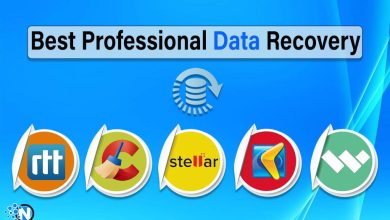
According to statistics, the SaaS market is worth over $195 billion in 2023. Many SaaS startups decide to sell, capitalize on the value created, and achieve a significant return on investment. Selling your SaaS startup can be a monumental accomplishment in your entrepreneurial journey, representing years of hard work, innovation, and tireless effort put forth toward building something truly valuable for customers.
However, navigating the intricate landscape of selling a SaaS startup can be tricky, and many entrepreneurs inadvertently make avoidable mistakes that can impact the outcome of the sale.
If you wonder, How do I sell my SaaS business for a good profit? And how do I avoid making any mistakes during the selling process? You can use this blog post to secure a successful transaction.
Neglecting Due Diligence
One of the gravest errors an entrepreneur can commit when selling a SaaS startup is neglecting thorough due diligence. Buyers are meticulous in their examination of the business, scrutinizing every aspect, from financials and operations to intellectual property and customer contracts. Failing to provide complete and accurate information can cause negotiations to collapse, potentially resulting in lost deals and contracts.
To prevent this mistake, ensure your records are organized and up-to-date. Engage legal and financial experts to assist with due diligence preparations while being open and upfront with regard to any risks or potential challenges the buyer might face. By addressing issues proactively and presenting a well-prepared due diligence package, you’ll instill confidence in potential buyers and facilitate a smoother transaction process.
Overlooking Customer Retention
Buyers of SaaS startups often prioritize customer retention as a key metric for assessing the value of the business. While focusing on acquiring new customers is important, ignoring the needs of existing customers can be a detrimental mistake. A sudden drop in customer satisfaction or an exodus of loyal clients during the process of selling can significantly diminish the perceived value of your startup.
To mitigate this risk, maintain open communication with your clients throughout the process of selling. Assure them that their needs will continue to be met, even under new ownership. Consider offering transition plans and support to help customers seamlessly adapt to any changes. Demonstrating a commitment to customer retention can make your SaaS startup a more attractive prospect for potential buyers.
Read Also: Top Tips By Experts To Run A Successful Amazon FBA Business
Ignoring Intellectual Property Rights
Intellectual property (IP) is often at the core of a SaaS startup’s value. Failing to protect and document your IP properly can lead to disputes and legal complications during the sale. Buyers are keen on understanding the ownership and licensing agreements of the software as well as any potential infringement risks.
To sidestep this pitfall, conduct a comprehensive audit of your IP portfolio. Ensure that all patents, copyrights, trademarks, and licenses are in order and up-to-date. Identify any potential IP-related issues that could raise concerns for buyers and address them before entering negotiations. Demonstrating a clear and secure IP position can enhance the perceived value of your SaaS startup and streamline the selling process.

Setting Unrealistic Valuation Expectations
Determining the appropriate valuation of your SaaS startup requires striking a delicate balance. Overstating its worth can scare away potential buyers while undervaluing it could result in missed opportunities to maximize returns. Some entrepreneurs make the mistake of attaching personal sentiment to the valuation, which can cloud judgment and hinder negotiations.
To avoid this pitfall, seek the expertise of a professional valuation expert who can provide an unbiased assessment of your startup’s worth. Consider market trends, comparable transactions, and the unique value proposition your SaaS product offers. Being open to a realistic valuation based on data and market conditions can create a more favorable environment for negotiations and increase your chances of a successful sale.
Neglecting Post-Acquisition Integration
Selling your SaaS startup doesn’t mark the end of your responsibilities. Neglecting post-acquisition integration can result in missed synergies and operational inefficiencies, which can negatively impact the value the buyer derives from the transaction.
To prevent this mistake, develop a comprehensive post-acquisition integration plan in collaboration with the buyer. Identify areas of alignment and potential challenges, and establish a timeline for integrating systems, processes, and teams. Clear communication and collaboration during this phase will help ensure a seamless transition and demonstrate your commitment to the buyer’s success.
Disregarding the Human Element
During negotiations and financial discussions, it’s easy to overlook the human element of a SaaS startup sale. Building strong relationships with potential buyers and maintaining open lines of communication can significantly influence the outcome of the transaction. Ignoring this aspect can lead to strained negotiations and a less favorable deal.
To avoid this pitfall, prioritize building a rapport with potential buyers from the start. Understand their motivations, concerns, and vision for the future of the startup. Be prepared to address any emotional or personal factors that may arise during negotiations. Demonstrating a genuine interest in the buyer’s success and aligning your objectives can create a more collaborative and fruitful selling experience.
Read Also: How To Keep Up With the Latest Marketing Trends In 2023?
Final Words
Selling a SaaS startup requires careful preparation and strategic decision-making. By avoiding common pitfalls during the sale process, you can increase its value while creating an effortless transition into the next stage of your entrepreneurial journey. Every step matters, from due diligence and customer retention to intellectual property management and post-acquisition integration. With the right approach, you can navigate the challenges of selling your SaaS startup and achieve a favorable outcome that reflects the true worth of your hard work and innovation.




